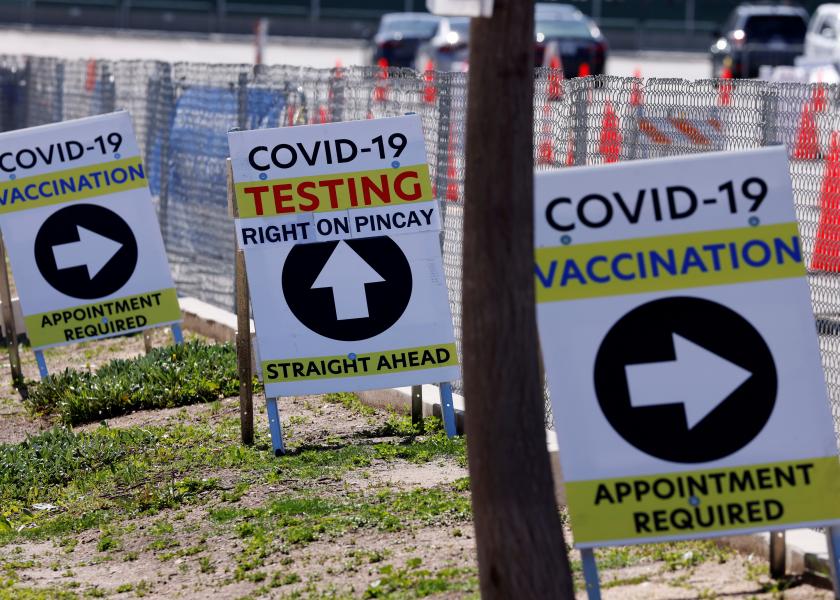House Subcommittee: Coronavirus Infections at U.S. Meat Plants Far Higher Than Previous Estimates

By Leah Douglas
Cases and deaths from COVID-19 among workers at the leading U.S. meatpacking plants were three times as high as previously estimated, according to a report by the House Select Subcommittee on the Coronavirus Crisis seen by Reuters.
The subcommittee surveyed major meatpackers Tyson Foods, JBS USA, Cargill, National Beef, and Smithfield Foods, which together control over 80% of the beef market and 60% of the pork market in the United States.
At those companies’ plants, worker cases of COVID-19 totaled 59,147 and deaths totaled 269, based on counts through January of this year, according to the report, which was expected to be released later on Wednesday.
That is far higher than a previous estimate by the Food and Environment Reporting Network (FERN), which had been used by government agencies and media throughout the pandemic, according to the report. FERN had counted 22,694 cases and 88 deaths among workers at the five companies as of Sept. 8, primarily drawing on data from news reports and public health agencies.
The meatpacking industry was especially hard hit by COVID-19 in part because its workers tend to be in close proximity for long hours in often messy conditions.
The new data comes from company calculations of worker cases primarily based on testing done within company facilities, meaning some infections identified through other health providers could have been excluded.
Cases were especially high at certain plants, including JBS’s Hyrum, Utah, beef plant and Tyson’s Amarillo, Texas, beef plant, where around 50% of workers contracted the virus, according to the report.
The report also included new details of lax safety protocols at some of the plants.
In May 2020 at Tyson's Amarillo plant, for instance, workers wore masks “saturated” with sweat, were not socially distanced and were separated by “plastic bags on frames” instead of CDC-compliant barriers, according to a Centers for Disease Control and Prevention (CDC) memo obtained by the Subcommittee.
Both Tyson and JBS said in statements on Wednesday they have spent hundreds of millions of dollars on COVID-19 health and safety efforts.
Cargill said in a statement it was "saddened by the tragic impacts of this virus on our colleagues and the communities in which we operate."
Officials from National Beef and Smithfield were not immediately available for comment.
The subcommittee report also suggested the Occupational Safety and Health Administration had not done enough to protect workers in the meat industry from the virus.
OSHA staff told the subcommittee that under Trump, the agency’s leadership made a political decision not to issue an emergency temporary standard (ETS) that would have required meatpackers to take certain safety precautions, the report said.
“Without being held to any specific standard, meatpacking companies were left with largely unchecked discretion to determine how to respond to the coronavirus pandemic, to the detriment of meatpacking workers,” the report said.
(Additional reporting by Tom Polansek in Chicago; Editing by Howard Goller)







